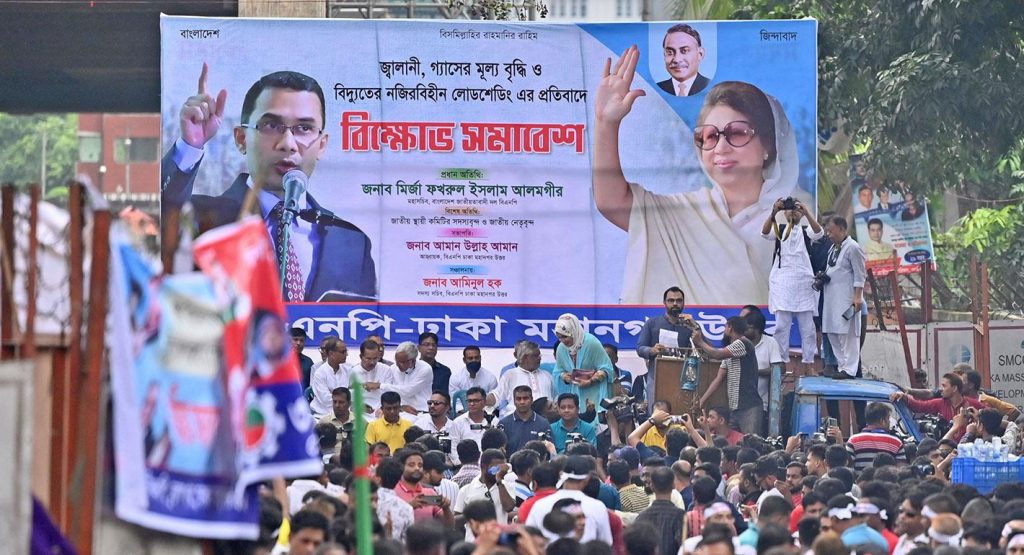The US’s visa restrictions on individuals who may hinder a free and fair election in Bangladesh have raised a lot of eyebrows. A lot of questions are floating around. The primary of which is whether or not this will be effective. To that question, I think that the matter of civility in politics needs to be paid heed to. What the US demands from Bangladeshi politics during the election time is civility, not conflict. But do the on-the-ground realities tell us that a civil path to the election is possible?
Our politics has been chaotic for a long time. Street confrontations, chasing, counter-chasing, and violence have been the norm. There is no sign that this will slow down ahead of the elections. In fact, they may become more common. The main opposition party, along with its allies, will have to push their movement to conflict mode as that seems to be the modus operandi of the ruling force. This means that the opposition force will be just as likely to face visa restrictions from the US. Will they be willing to risk that?
Maybe they will, as they have no other way to ascend to power. They will have to risk their chances of going to the country of their dreams to fulfil the dream to ascend to the power of the country they are living in. This is the price they must pay. But, can they not do something else? Can they not be civil and avoid confrontations, collisions and violence altogether?
That seems unlikely as the realities will definitely force them into violence. The ruling party will try to pit them into a corner and their only recourse will be to come out of there fighting to show to the world and the voters in the country that the BNP is a fundamentally violent force on the landscape of the (mirage of a) stable country that the AL has built. When that takes place on a large scale, it will be impossible to tell who started what and the media will simply report the incidents as “clashes,” implying equal culpability to both the ruling party and the opposition. This may mean that the US will not grant visas to either party members, but will not mean that the clashes will not take place altogether.
Whatever the case may be, the BNP will be well advised to not follow a path of unprovoked violence. If the party is planning on strikes and blockades, they must carry them out as peacefully as possible. It is understandable that the party now enjoys some level of public sympathy if not support for being on the brunt of the ruling party’s repressive actions. Many people are frustrated with the current government and want to see a change. If the BNP turns violent, they will lose that support and their chances of getting general popular support to dethrone the current party will be even more jeopardised.
While we are on the topic of civility, let me thank the BNP for trying to be largely civil in the past year. There have been clashes with the ruling party and even within the party, but the overarching directive seems to be one of peaceful resistance and that is working well for the party. Whether or not that continues to be the case is yet to be seen. But the force of the ruling party, which has subsumed the entirety of the government apparatuses, may just be too strong for the BNP to just face it with peaceful actions. If that is the case, there is no future for civil politics, with civil policy debates and free and fair elections in Bangladesh in the recent future.
How long would it take for our politics to rise above violence? We are on the way to graduating from the least developed country status, but our politics seems to be lagging behind. Every time we turn the TV on, we can see senior politicians from the ruling party attacking the opposition vehemently and the opposition reacting with equal and opposite force. The ruling party leaders say that the opposition will be treated with a mighty hand and we see the implementation of that rhetoric on the field. How long until we can break this cycle? How long until our leaders get out of the personal grudges they hold against their opposite parties and learn to deal politics in a professional manner?
I guess, the only solution to this problem is a new breed of politicians who will be taught differently and who will approach politics differently. It is difficult to envision such a class of politician in the age of clashes and violence when young people couldn’t care less about the political ongoings of the country, but it is a worthy dream nonetheless. I am not sure what future I am dreaming of and how far that future is, but I still envision that future and wait for it eagerly. Maybe then we would not be needing some big brother to impose restrictions on us to make us behave in a civil way.
Anupam Debahshis Roy is an editor of Muktiforum


